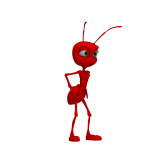Has the use of the term "plant-based" gotten completely out of hand? You have no idea.
Other Science News
Even satellites grow old, but did we expect dementia?
The Gut - Wellness eludes those in dietary despair
Kitchen Aid, domestic muse
Ant societies - “Humans should not confuse impact with control.”
In Part 1 of this series, we presented evidence that a not insignificant amount of published science and the “knowledge” resulting from it is wrong. There are many reasons, including experimental carelessness, differences in how researchers approach statistical analyses, journals’ bias against publishing negative results, and outright dishonesty by investigators. Part 2 describes how activist scientists can use meta-analyses to manipulate data to reach a predetermined, but flawed, conclusion.
The guilt trip of buying local – are farmers' markets the carbon saviors they claim to be?
Diversity is key, even in cheese.
Air Canada blames its chatbot, now deemed a 'separate legal entity,' for misinformation in court.
Forget the quaint image of London's smog; Melbourne’s 'thunderstorm asthma' brings unexpected respiratory dramas.
Much published science and the "knowledge" resulting from it is likely wrong and sends researchers chasing false leads. Without research integrity, we don’t know what we know, so it is incumbent on the scientific community to find solutions.
Much of our music, from classical to contemporary, is written in either a major or minor key (with exceptions, such as jazz, which uses neither). For most, a major key conjures up feelings of happiness, while pieces written in a minor usually do the opposite. Is this merely a function of learned behavior, or is there something else going on?
Can autonomous vehicles be made safe?
Is Sabbath the cure for burnout?
It’s back – in this case, Tulare Lake
Smoking Cessation Victorian Edition
And A Bonus Meme
Are you better off now than before? It depends
Illegal markets in sand
A Beginner’s Mind Looks at Immunology
The political philosophy of Silicon Valley
Reading and understanding legal decisions
Boeing is not the only company with a trust problem
Can bad science result in good regulation?
How much Vitamin D should you be taking?
In this wide-ranging radio conversation, Mark Hahn and I discuss the spectrum of genetic modification, including the use of CRISPR technology to enhance the resistance of bird flocks, such as chickens and turkeys, against diseases like Avian Influenza.
Mutualism describes a relationship that benefits both parties – the win-win of our world. A new study reports on a mutualism that goes from ants to trees to elephants to lions and zebras. It serves as a reminder of the mutualism around us.
Cash on hand
What’s in a name – influencer
When Everyone is in Charge
Artificial Intelligence and Craft











